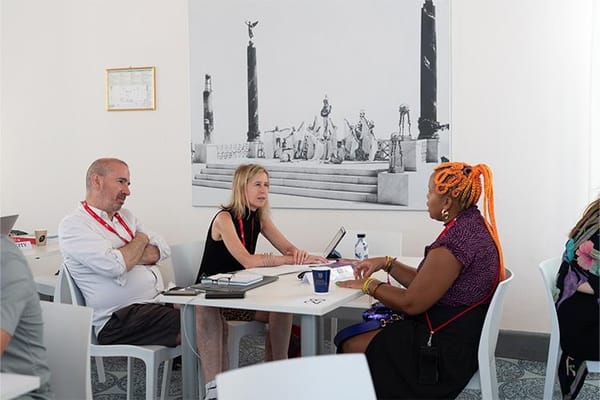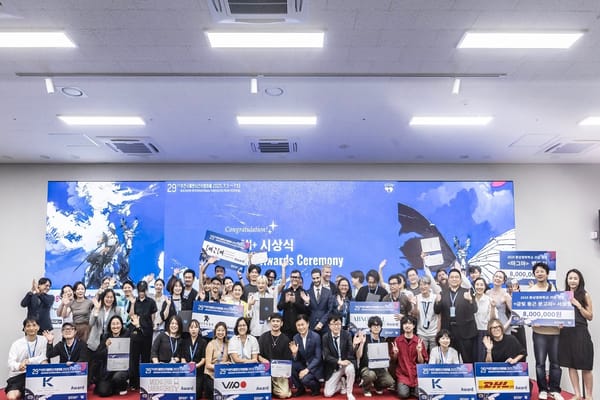INTERVIEW: MoviePigs Founder, Perihan Abou-Zeid
The founder of New York-based SVOD platform MoviePigs talks about building a global audience for Arabic-language films.

New York-based SVOD platform MoviePigs offers access to a wide range of Arabic-language movies, including Egyptian and Syrian classics, along with contemporary festival favourites such as Omar, Wadjda and Paradise Now.
Soft-launched for North American viewers at San Francisco’s Arab Film Festival last October, the site went full throttle on January 1 and is now also available in the UK, France, Germany, Italy and Scandinavia.
In the US, the platform has three monthly subscription packages: $6.99 for standard definition and single device usage; $7.99 for HD and two devices and $10.99 for HD, unlimited devices and early access to some titles.
Q: How are you funded?
A: We have one investor from the US – Dave McClure, the founder of 500 Startups – and two from the region. One is Hala Fadel from Lebanon, who is chairperson of the MIT Enterprise Forum - Pan-Arab Region, and the other is Tarek Nasr from Egypt, who is the managing director of Juicelabs and The Planet.
Q: What kind of competition do you have in the Arabic-language streaming space?
A: There are definitely other platforms out there like Istikana, Cinemoz and Icflix, but they are focused on the Middle Eastern market, which we’re not targeting at all. We also have a different user experience.
One thing you find on our platform is that we have more of a social experience – you can see a description of the movie, read profiles of the cast and follow them and write on their walls, and find out more about their movies and awards. You can also see reviews of the films and add your vote. This allows us to acquire a lot of strategic partnerships because we can cross promote with other organisations like film festivals.
Also our library is focused more on movies that have global appeal – you don’t see many festival movies on the other platforms. Those are the ones we focus on because they are interesting not just to Arabs living overseas, but also to non-Arabs interested in the Arab narrative. In the US, non-Arabs account for up to 50% of the attendance of Arab film festivals. This influences the library we acquire, as we want to make sure we’re serving that audience and not just offer the nostalgic or ‘insider joke’ kind of Arab films.
Q: So you wouldn’t carry mainstream Egyptian movies?
A: We have some of those as well, mostly classics, because back then nearly all films were mainstream as there wasn’t really an independent space. But we also have a lot of movies from Youssef Chahine, who is known for offering a different kind of narrative and definitely has appeal for audiences overseas.
Q: How big is the Arab diaspora in North America?
A: That’s an interesting question and difficult to quantify because in any census there is no such ethnicity as Arab. Officially, it’s thought to be around four million, but this doesn’t count the permanent Americans or the students. Unofficially, people say there are around 10 million people across North America that are somehow affiliated with the Arab region.
Q: Do some of the movies you buy have a US theatrical distributor?
A: Yes, but only one or two Arab films a year get released theatrically in North America, and the theatrical distributor doesn’t usually have the digital rights, so we always go back to the producer or distributor. Rotana and Arab Radio & Television (ART) have a lot of digital distribution rights.
Q: What challenges do you face in acquiring rights?
A: We only acquire digital rights and its definitely been difficult in terms of getting approvals, getting the movies in HD, getting them transferred from one country to another. Subtitling has also been another huge challenge as a lot of movies have the subtitles edited into them, which is not a perfect experience on TV. That’s slowing us down big time because we have to do all the work that typically in any other advanced market would already have been done. Even getting signatures is challenging because of lot of studios self-distribute, so in a lot of cases you have to deal with the owner of the studio, and they’re always busy.
Q: Is it difficult to track down rights for older films?
A: The funny thing is that the classics have been the easiest to get rights for, because we can buy them in bulk and a whole bunch are owned by Rotana and ART, stretching from the ‘60s to the ‘90s. We also have theatre performances from ART, which we acquired because they represent a huge part of Arab entertainment history and people are always nostalgic about those plays. No matter how many times they’ve seen them, they want to see them again.
Q: Does all this complexity explain why it’s still difficult to see a lot of Arab films?
A: Yes, basically. I did an MBA at MIT [Massachusetts Institute of Technology] and spent the second year there doing a thesis on fragmentation of the value chain – that’s how I was inspired to do this. I was basically trying to figure out how web technologies can take away the fragmented value chain of specialty films, and that is a huge challenge, because it's different to Hollywood where one entity does the creative, funding, marketing and distribution. For specialty films, so many people are involved, and they often don’t even know who you should be talking to, and keep referring you to different people.
We’re hoping things will change because now growth is coming from local markets, not US theatrical, and millennials are consuming content on television, not in theatres, so everyone has to step up their game.
Q: What were you doing before this?
A: I ran a production company, Qabila Productions, that made docs for Al Jazeera and UN agencies and we held our own short film festival. That was an opportunity to work with thousands of filmmaking talents. I’ve also worked on Google and YouTube’s entry into Middle Eastern markets and saw how people are consuming a lot of content online. This is my fourth business – the first was an events planning company straight out of college.




